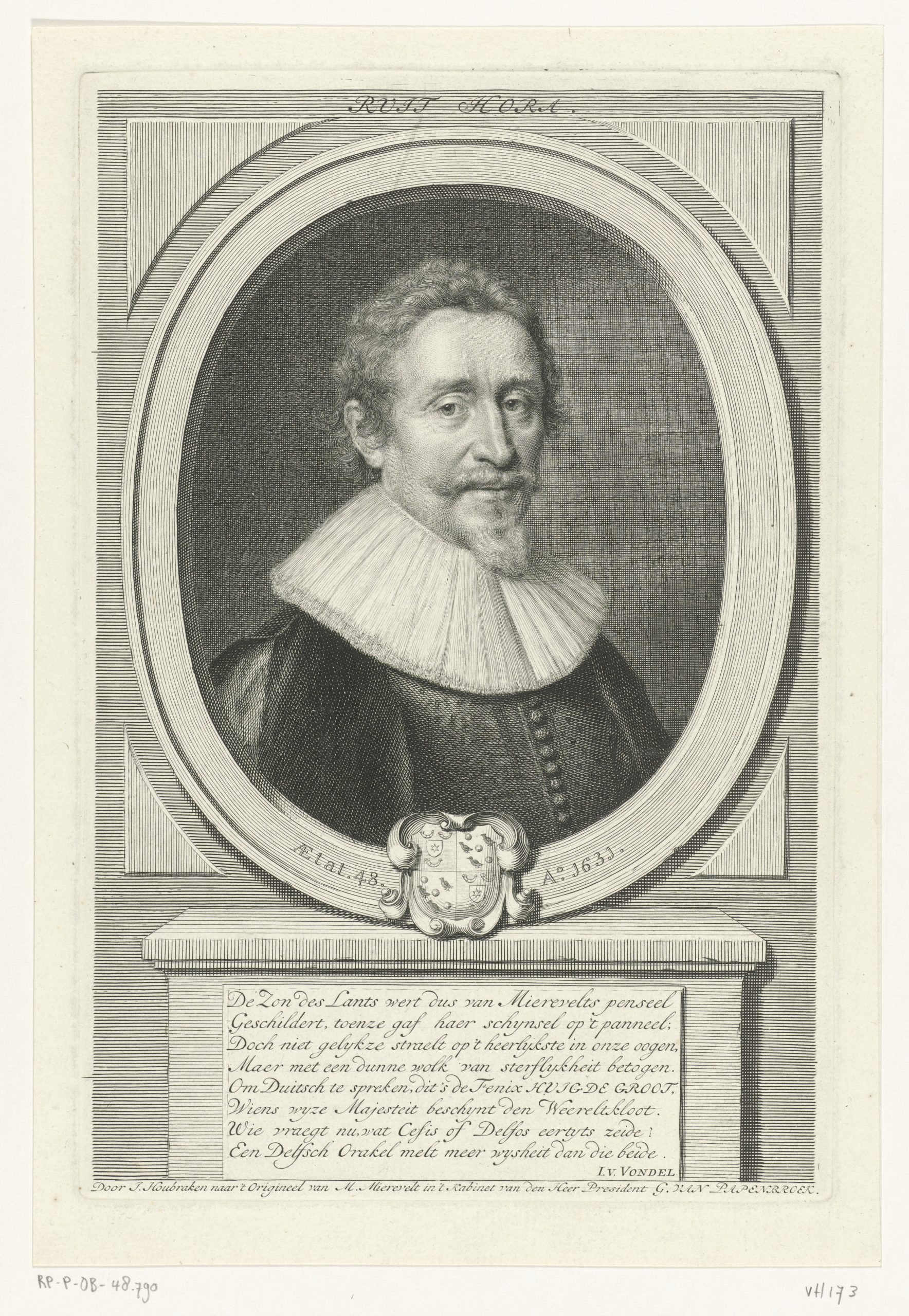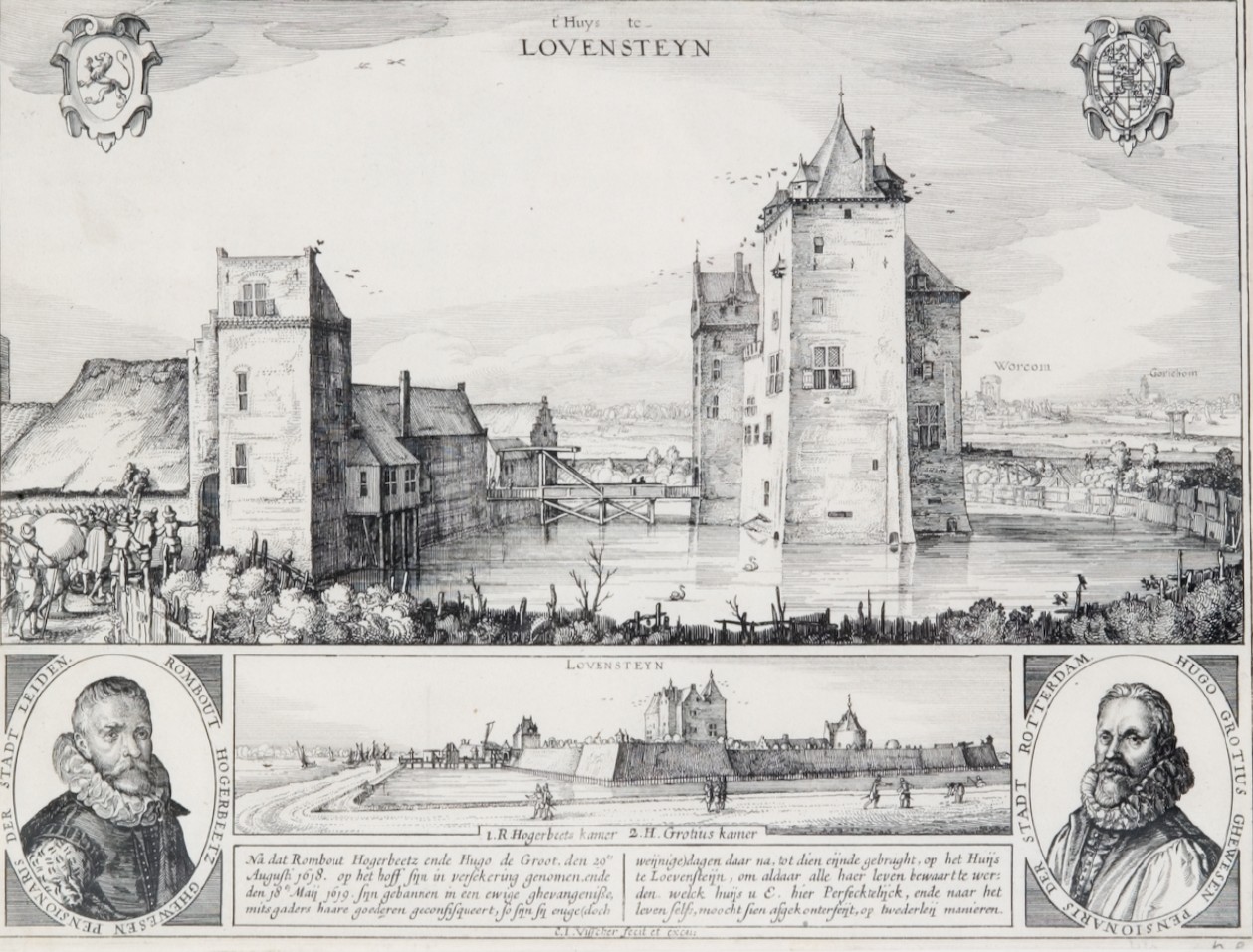Hugo Grotius is best known for his daring escape from Loevestein Castle. His true legacy, however, lies in his ideas on peace, freedom, and justice — ideas that form the foundation of modern international humanitarian law. Today, that law is under pressure: treaties are broken, and nations withdraw from the institutions that uphold them.
In the footsteps of Hugo Grotius
Four centuries ago, Hugo Grotius wrote his groundbreaking work De Iure Belli ac Pacis (On the Law of War and Peace). In it, he articulated principles for protecting innocent people during times of war — principles that, at their core, still shape our understanding of justice today.
One person can make a difference. Since Grotius’s time, many individuals and organisations have followed in his footsteps. They stood up for peace and justice — from the Red Cross and Médecins Sans Frontières to KidsRights and countless committed citizens. You, too, can make a difference, just as Hugo Grotius did. Let his example inspire you today.
Turbulent times
In the early 1600s, in the midst of the Eighty Years’ War, the Dutch Republic was shaken by deep unrest. During the Twelve Years’ Truce (1609–1621), a theological dispute spiralled into a fierce political power struggle between Prince Maurice and Johan van Oldenbarnevelt.
In 1619, Maurice seized power. Van Oldenbarnevelt was executed, while his advisors Hugo Grotius and Rombout Hogerbeets were sentenced to life imprisonment in Loevestein Castle — which from that moment on became a powerful symbol of political oppression.
- Portrait of Hugo Grotius
Jacob Houbraken, 1749–1759. Rijksmuseum, Amsterdam - ’t Huys te Lovensteyn
Claes Jansz. Visscher (II), 1630. Collection Rijksmuseum Slot Loevestein. - The true face of Johan van Oldenbarnevelt
Unknown maker, 1900–1920. Collection Rijksmuseum Slot Loevestein.







